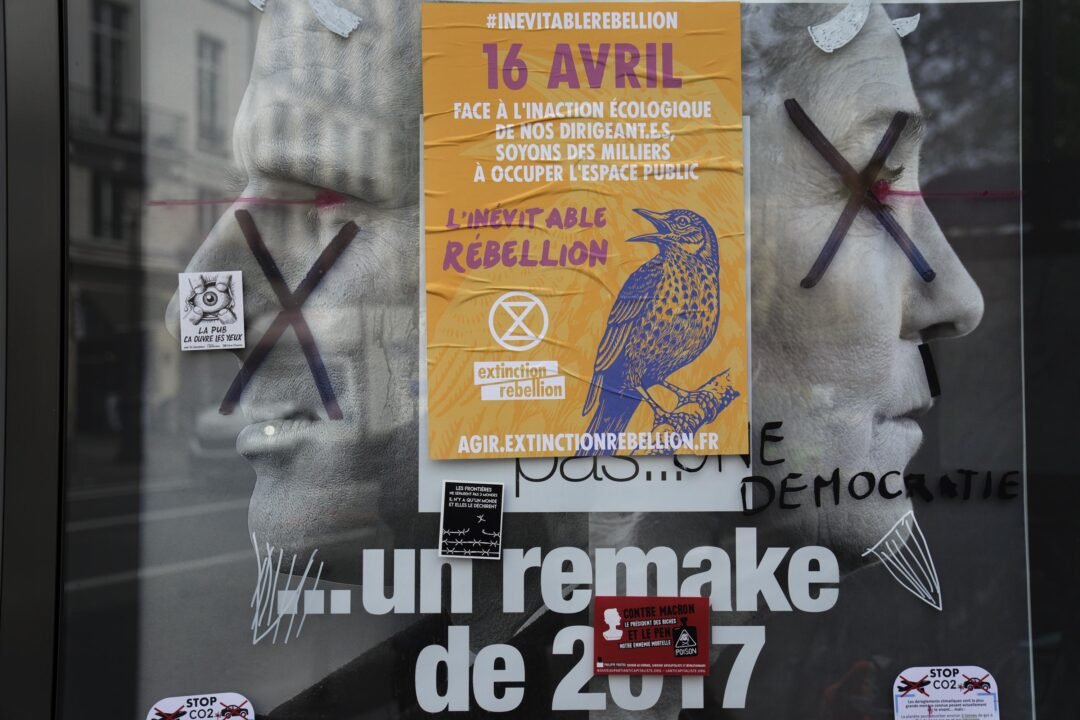PARIS, April 6 (AP): President Emmanuel Macron is the clear favourite in France’s presidential race on Sunday yet a big unknown factor may prove decisive: an unprecedented proportion of people say they are unsure who to vote for or don’t intend to vote at all, bringing a large dose of uncertainty to the election.
The pro-European centrist is still comfortably leading in the polls.
His main challenger, far-right leader Marine Le Pen, appears on the rise in recent days. Both are in good position to reach the presidential runoff on April 24, which would make them replay the 2017 election that Macron won handily.
There’s “no certainty,” Macron warned during his first big rally on Saturday near Paris.
“Don’t believe in polls or commentators who would sound definitive and tell you that … the election is already done, that everything is going to be all right,” he told his supporters.
“From Brexit to so many elections, what seems unlikely can happen!” Scenarios for the this year’s second round vote show that Le Pen has significantly narrowed the gap with Macron compared to 2017 —when she lost with 34 per cent support to his 66 per cent.
Polls still place her behind Macron, but much closer, apparently showing the wisdom of her longstanding strategy to soften her rhetoric and image — allowing her to capture the anti-Macron vote as well as far-right support.
In recent days, Macron’s campaign has also hit a speed bump dubbed “the McKinsey Affair,” named after an American consulting company hired to advise the French government on its COVID-19 vaccination campaign and other policies.
A new French Senate report questions the government’s use of private consultants and accuses McKinsey of tax dodging. The issue is energizing Macron’s rivals and dogging him at campaign stops.
Many in Macron’s camp fear that his supporters may not go to polling stations because they already think he will win, while those angry at his policies will make sure to vote.
“Of course I have concerns,” said Julien Descamps, a 28-year-old member of Macron’s party, stressing that some people in his entourage “don’t know what to do.” “They are not fully convinced by Macron, but if they reject the extremes, they should vote for him,” he said.
Macron called on voters to get mobilised against both France’s far-right and the far-left. “Don’t boo at them, fight their ideas,” he said.
In third position according to the polls is far-left figure Jean-Luc Mélenchon, who has increased his support but still is a distance behind Le Pen.
Another far-right candidate, Eric Zemmour, and conservative contender Valérie Pécresse are amid other key challengers. Sunday’s first round will qualify the two top candidates for the runoff.
The presidential election is the one that is attracting French voters the most.
Yet the turnout has decreased from 84 per cent in 2007 to about 78 per cent in 2017, and studies show that abstention may be higher than five years ago.







